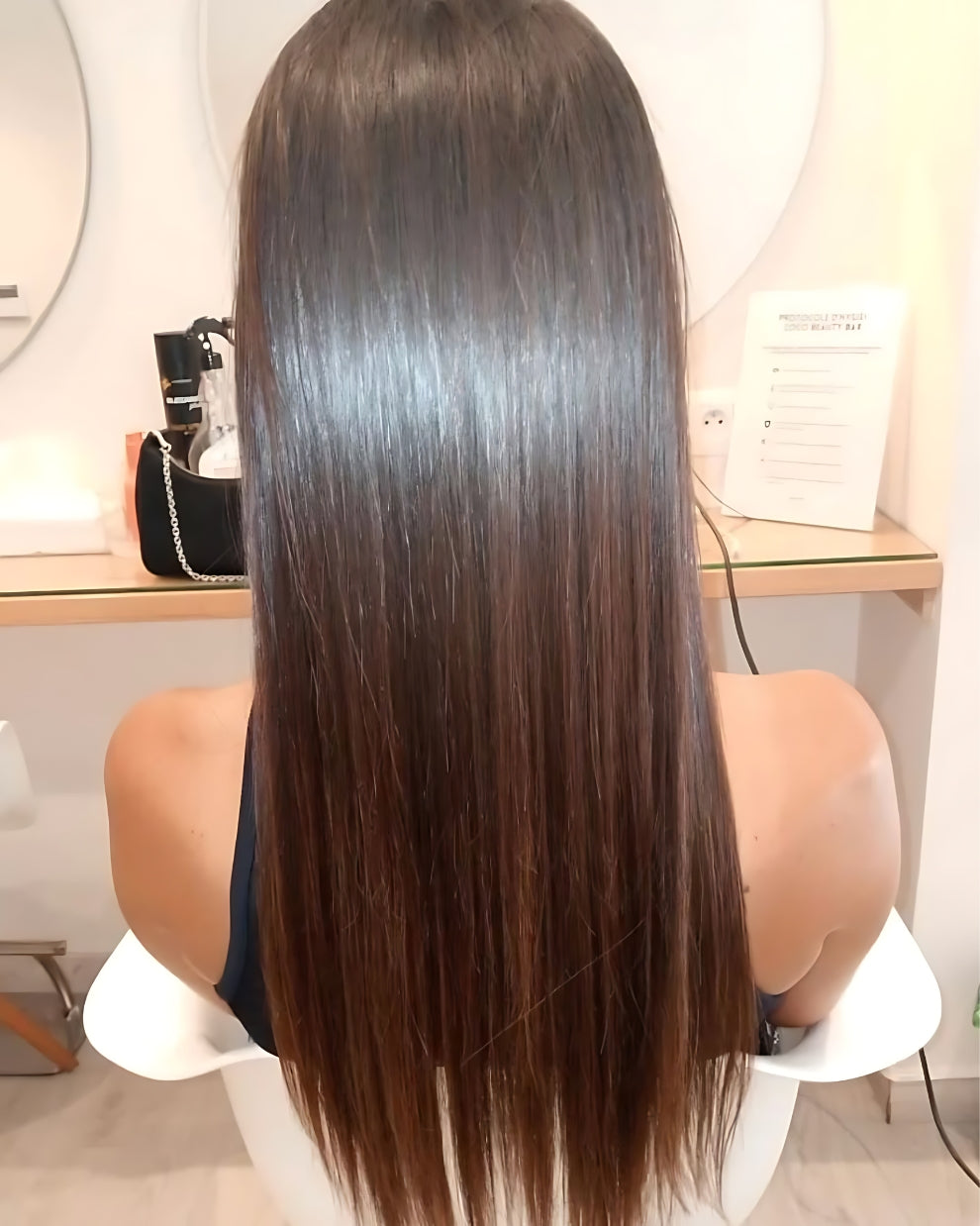How Does Diet Affect the Health of Your Hair?
We are what we eat, as the saying goes. This expression also applies to our hair. In fact, diet plays a vital role in the health of our hair. What you put on your plate can have a significant impact on the appearance and vitality of your hair. In this article, we will explore in detail how diet affects the health of your hair and provide you with tips on how to maintain strong, vibrant hair through a balanced diet.
Essential nutrients for healthy hair:
To understand how diet affects your hair, let's first look at the essential nutrients your hair needs.
- Proteins
Hair is made up primarily of protein, especially keratin. Make sure you get enough protein, from foods like lean meat, fish, eggs, legumes, and dairy products. Protein provides the building blocks needed for hair growth and hair structure.
- Vitamins
Vitamins play a crucial role in hair health. In particular, vitamins A, C, D, and E are essential for hair growth and scalp health. You can find them in a variety of foods, including green leafy vegetables, citrus fruits, eggs, and nuts. Vitamin A promotes the production of sebum, which keeps hair hydrated. Vitamin C stimulates the production of collagen, which is essential for hair structure. Vitamin D is important for hair growth, while vitamin E acts as a protective antioxidant.
- Minerals
Minerals, such as iron, zinc, copper, and magnesium, are also crucial for healthy hair. Iron carries oxygen to the hair follicles, promoting growth. Zinc helps maintain scalp health, while copper contributes to hair pigmentation. Magnesium is essential for strengthening hair. You can find these minerals in foods like red meat, legumes, nuts, and seeds.
- Omega-3 fatty acids
Omega-3 fatty acids, found in oily fish, flaxseeds, and walnuts, help moisturize the scalp and prevent dry hair. They also strengthen hair, making it less prone to breakage. Be sure to include these foods in your diet for well-hydrated, strong hair.
- Water
Hydration is essential to maintain hair moisture. Make sure you drink enough water to keep your hair well hydrated. Dehydration can make hair brittle and dull, so it is important to stay well hydrated to maintain the health of your hair.
Nutrients that promote healthy hair:
- The eggs
Eggs are rich in protein, biotin, and vitamins that are essential for healthy hair. Biotin, in particular, is beneficial for strengthening hair and stimulating growth. Eggs are also a great source of sulfur, which is essential for the formation of keratin, the main protein in hair.
- Oily fish
Fish like salmon, mackerel, and tuna are rich in omega-3 fatty acids, which help keep your scalp hydrated and healthy. They reduce scalp inflammation and promote hair growth. Omega-3 fatty acids also have anti-inflammatory properties that can help relieve scalp issues like dandruff.
- Green leafy vegetables
Spinach, kale, and other leafy greens are rich in vitamins A and C, which promote sebum production for hydrated hair. Vitamin A helps regulate sebum production, while vitamin C stimulates collagen production, improving hair structure. Additionally, these vegetables are rich in iron, which promotes blood flow to hair follicles.
- Nuts and seeds
Nuts and seeds are great sources of protein, vitamins, and minerals for strong hair. For example, cashews are rich in zinc, while sunflower seeds contain copper. Chia seeds are rich in omega-3 fatty acids, while almonds are a source of vitamin E. These foods can be incorporated into your diet to support healthy hair.
- Legumes
Lentils, chickpeas, and beans are rich in iron and protein, which promote hair growth. Iron is essential for transporting oxygen to the hair follicles, while protein is the building blocks of hair. Legumes are also a good source of biotin, a B vitamin that strengthens hair.
Nutrients to avoid for better hair health:
- Foods high in sugar
A diet high in sugar can cause blood sugar levels to fluctuate, which can contribute to hair loss. Blood sugar spikes can trigger inflammation in the scalp, which can weaken hair and make it more likely to fall out. Therefore, it is recommended to limit your sugar intake to maintain healthy hair.
- Processed foods
Processed foods often contain chemical additives, unhealthy fats, and added sugars, which can be detrimental to hair health. These products can cause inflammatory reactions in the body, also affecting the scalp and hair follicles. Opt for fresh, unprocessed foods for better hair health.
- Excessive alcohol and caffeine
Excessive alcohol and caffeine consumption can lead to dehydration, which can be reflected in dry hair. Alcohol can also disrupt hormonal balance, which can lead to hair loss. It is important to consume alcohol and caffeine in moderation and ensure you stay well hydrated.
Conclusion
Diet plays a fundamental role in the health of your hair. By making sure to include foods rich in protein, vitamins, minerals and omega-3 fatty acids in your diet, you can help maintain strong, shiny and healthy hair.
Remember that the key is a balanced and varied diet. By adopting good eating habits, you are investing in the beauty and health of your hair, which will be reflected in its overall appearance. Take care of your body from the inside out, and your hair will thank you with a radiant appearance and increased vitality.
Lissage Brésilien : Réponses à Vos Questions
Découvrez notre Guide Complet du Lissage Brésilien : Réponses à Vos Interrogations







